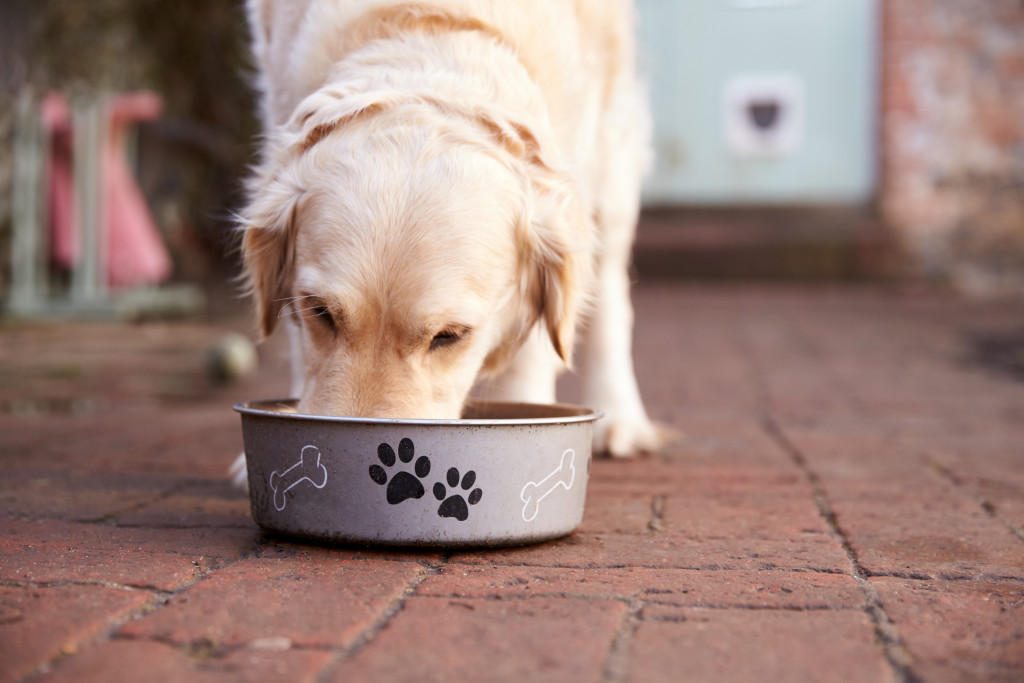Just like humans, every dog’s body is unique. They can also have food allergies and sensitive stomachs. The diet that works on another dog may or may not work on yours. But there are definitely foods no dog should ever eat.
If you’re pet-parenting for the first time, you’ve probably heard lots of different tips when it comes to feeding. Those can be confusing, because if you ask other pet owners for advice, you may find that what they say clashes with the advice of a vet or another pet owner. For example, someone might say that dogs should be on a strictly omnivorous diet, while your vegan friend might disagree and say that a vegan diet is better for their health. Who’s telling the truth then?
In this scenario, seeking a vet’s advice makes the most sense. But what if your dog rejects the diet recommended by their vet?
Before experimenting with your pup, let’s first identify the common myths about dog-feeding, and what diets are the safest and healthiest for them.
Myths About Dog Food and Feeding
-
Dogs are Carnivores
With commercial dog foods being mixed with plant-based ingredients, it’s astonishing to realize that some people still believe dogs are carnivores. This notion may come from the fact that wolves are strictly carnivorous. But dogs, though they have the same set of teeth as those of a wolf, are well capable of digesting vegetables.
-
Dogs Can’t Eat Dairy
If your dog can’t seem to take dairy, other dogs aren’t necessarily the same. Lactose intolerance also exists in animals.
-
Dogs Can’t Eat Raw Food
Like lactose intolerance, this is partially true. Some dogs thrive on a raw food diet, while others can get sick from it.
-
Dogs Can’t Eat Raw Eggs
Again, this is partially true. Some dogs process raw eggs well while others cannot. But in any case, it’s safer to feed boiled eggs to dogs than raw ones. It’s in fact a good food for them because egg yolks are packed with biotin.
-
All Bones are Good for Dogs
Dogs really do need to chew on bones, but it should be raw. Cooked bones don’t give benefits to dogs at all, and can even be harmful to their health.
Raw bone marrow stimulates dogs, cleans their teeth, and provides them nutrition. But don’t give them raw bones that easily break, like chicken bones. Dogs shouldn’t swallow bones, especially cooked ones, because it can tear their esophagus, stomach, or intestines. Small and cooked bones are also choking hazards.
-
Dog Food Can be Hypoallergenic

Whether a dog food is hypoallergenic is on a case-by-case basis. If a dog is allergic to chicken, it can’t eat anything chicken-based, even if that’s advertised as hypoallergenic. That means there can be no food that’s hypoallergenic for all dogs.
Best Diet For Dogs
There’s no one-size-fits-all diet for dogs. But there are certain foods all dogs shouldn’t eat, which we’ll discuss later. In the meantime, here are the best diets for dogs:
-
Plant-based Diet
A plant-based diet, a.k.a. vegan diet, turns out to be beneficial for your pooch — and for the earth. Dog and cat food production leaves a significant carbon footprint, so by changing your pet’s diet into a vegan one, you can help save the earth. However, it can be hard to get the vegan diet right if it’s for a dog, so consult a veterinary-trained nutritionist before switching their diet.
-
Raw Food Diet
Fur-parents who give raw food to their dogs reported positive outcomes, such as a shinier coat, relief from chronic conditions, and stronger tendons and ligaments. Dogs can eat either homemade raw food or raw dog food. If you want to try this for your pooch, don’t limit their food to just muscle meat, though. Include herbs, vitamins, and minerals as well.
-
Balanced Diet
If you can’t commit to a single type of diet, give your dog well-balanced meals instead. They can consume home-cooked, human food, too. Just limit their intake of grain, dry kibble, or any dry food in general. Wet food is better for a dog’s health.
Food to Avoid
To prolong your dog’s life, never feed them these foods:
- Chocolate
- Avocados
- Apple seeds
- Apricot pits
- Grapes
- Any candy with Xylitol
- Coffee and other caffeinated drinks
- Hops
- Macadamia Nuts
- Walnuts
- Garlic
- Onion and onion powder
- Alcoholic beverages
- Potato leaves and stems
- Tomato leaves and stems
- Cherry pits
- Peach pits
- Raisins
- Rhubarb leaves
- Yeast dough
Remember, dogs originally came from the wild, so their domestication doesn’t change what their stomach can and cannot handle. Take note of the foods they shouldn’t eat, as well as of the foods they love. But don’t spoil them with their favorites; prioritize their health above their treats.

